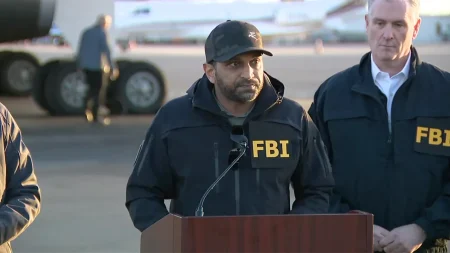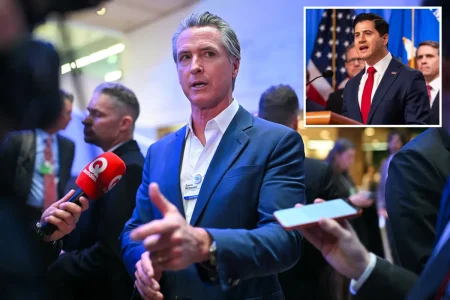A Tragic Act of Violence: The Charlie Kirk Shooting and Its Aftermath
In a shocking incident that has rocked the political landscape, 22-year-old Tyler Robinson stands accused of fatally shooting Charlie Kirk, the founder of Turning Point USA, during a campus speech at Utah Valley University. Kirk, only 31 years old and a father of two, was addressing a crowd as part of his national speaking tour when a sniper’s bullet struck him in the neck in the campus courtyard, cutting short the life of a prominent conservative figure. The assassination has sent ripples through both political spheres and raised urgent questions about political violence in America, leaving communities grieving and searching for answers in the face of such a deliberate and tragic act.
The legal proceedings for Robinson have now moved forward with the appointment of Kathryn Nester as his defense attorney. With more than three decades of experience including work as a federal public defender, Nester brings significant expertise to this high-profile case. The Utah County Commission unanimously approved her appointment after the court determined Robinson couldn’t afford private counsel, fulfilling what county officials described as their “constitutional responsibility to ensure that individuals accused of a crime—who cannot afford legal representation—are provided with a qualified defense.” Notably, Nester also represents Kouri Richins in another high-profile case involving a mother accused of poisoning her husband before writing a children’s book about grief.
Court documents paint a complex picture of Robinson, describing him as an electrician apprentice who had recently grown distant from his immediate family while becoming “more political” and increasingly supportive of “pro-gay and trans rights” over the past year. In what appears to be a confession sent via text message to his roommate and transgender romantic partner following the shooting, Robinson allegedly wrote, “I had enough of his hatred,” referring to Kirk, and added ominously, “Some hate can’t be negotiated out.” These words suggest a politically motivated attack, though the full psychological and ideological factors that may have contributed to this violent act remain to be fully examined in court.
The gravity of the charges against Robinson cannot be overstated. He faces aggravated murder charges, which in Utah can potentially carry the death penalty. This severity has necessitated the appointment of defense counsel specifically qualified to handle capital punishment cases, as required by state law. Beyond the state prosecution, Robinson may also face additional federal charges in separate proceedings, adding further layers of complexity to an already high-stakes legal battle that will undoubtedly be closely watched across the nation.
This tragedy occurs against the backdrop of increasingly heated political discourse in America, where ideological differences have sometimes spiraled into dangerous hostility. Kirk’s assassination represents a disturbing escalation of political tensions into lethal violence. As a prominent conservative voice, Kirk had gained both devoted followers and fierce critics through his outspoken positions on various social and political issues. His murder has prompted reflections across the political spectrum about the consequences of dehumanizing political opponents and the dangerous potential of rhetoric that frames ideological adversaries as existential threats.
As the legal process unfolds, many questions remain about the motivations behind this tragic act and its broader implications for political discourse and public safety. What drove a young man to allegedly take such extreme and violent action? How might this tragedy affect the tone and security measures of political events moving forward? And perhaps most importantly, how can a deeply divided society find ways to engage in passionate but peaceful disagreement without descending into violence? While Robinson will face justice through the legal system, the broader challenge of healing societal divisions and preventing future violence remains a responsibility shared by all Americans who wish to preserve both passionate advocacy and peaceful coexistence in their democracy.










